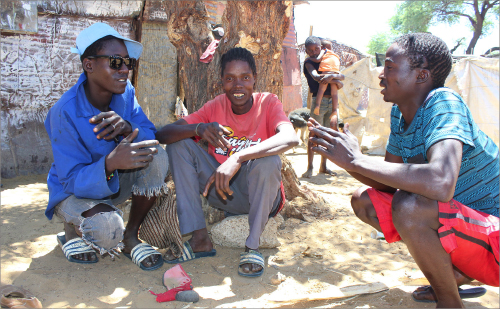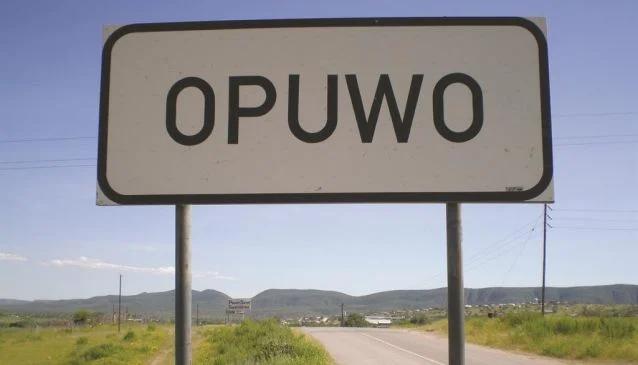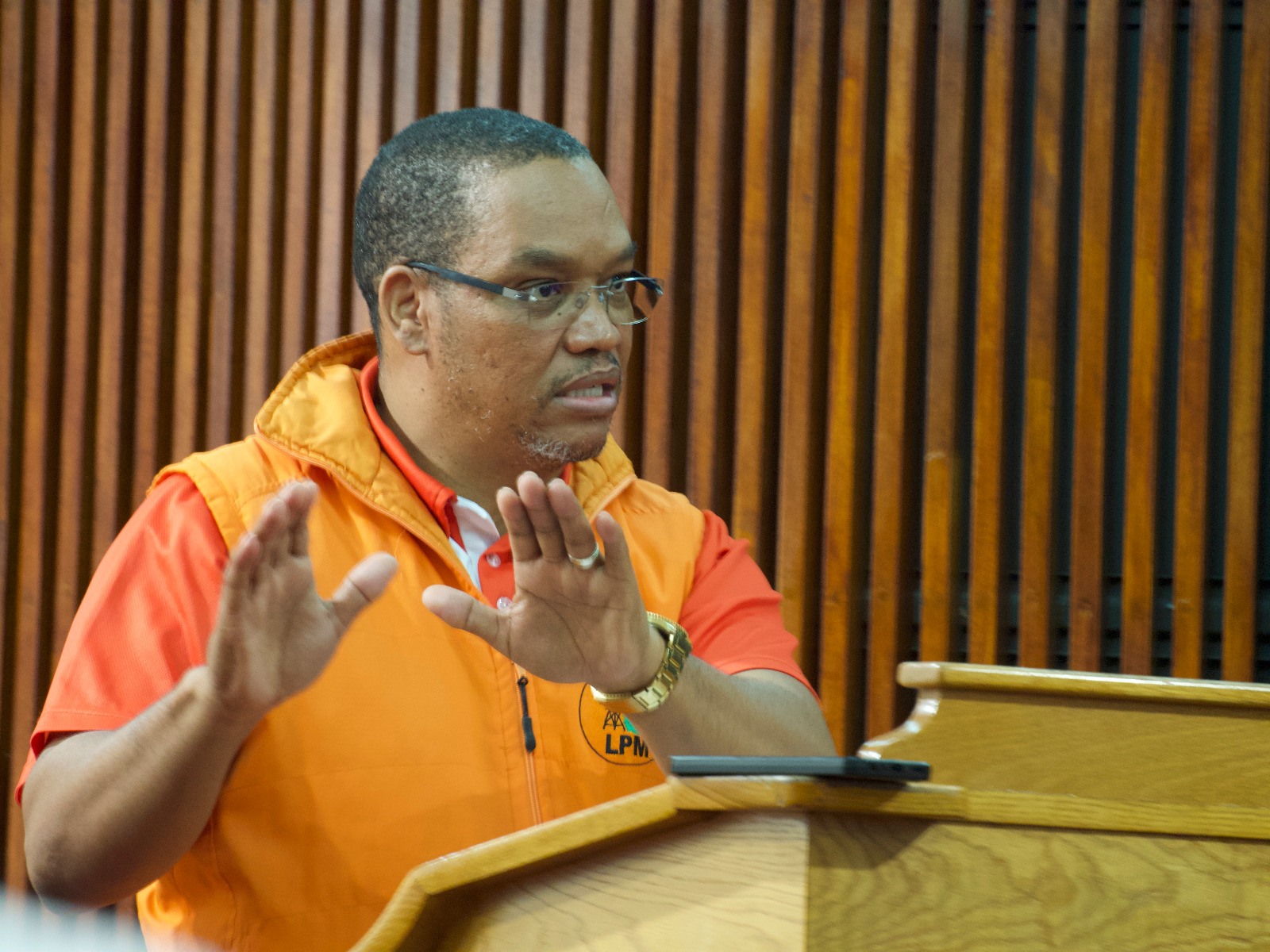A boy sits fumbling with the pen in his hand as he struggles to write a four-word sentence.
Petrus Goagoseb (15) squints his eyes with uncertainty, ever unsure if he is getting the spelling of the English words correct after being asked if he can read and write. He tries to prove that he is literate by writing a few words.
It takes him exactly five minutes to write the entire sentence: ‘I livin in omitara’ he finally manages to write. The words are scribbled in a child-like fashion, but still provide evidence that he had learned something during his short-lived school career.
“He dropped out of school in Grade 9,” a family friend, Max Hoxobeb – who is also the community leader at Omitara – tells us. “Now he just sits at home the entire morning and afternoon doing nothing.”
Two years after dropping out of school, Goraseb faces an uncertain future, just like many of his peers in Omitara, a settlement about 100 kilometres east of Windhoek in the Steinhausen constituency. He is missing the necessary skills needed in the job market and does not feel motivated to continue his education. His expression does not change when we inform him that secondary education might be offered for free in the near future. Most of the young people here are school dropouts in a community of less than 1000 people.
Accounts of school drop-outs like Goraseb’s are all over the settlement. A drive around the area reveals scores of young people walking down the dusty streets with no specific direction in life. Although the settlement has benefited from the Basic Income Grant pilot project since 2009, the youth still seems destitute and hopeless. Community members told The Namibian that despite having received the N$100 grant a month, the community continues facing hardships, and the school drop-out rate continues to escalate. Music is playing loudly from a nearby shebeen not too far from where we are seated. There are about ten shebeens that operate 24 hours dotting the settlement, a reality that worries community leader Hoxobeb, who believes the alcohol outlets are negatively influencing the youth.
*Leo Hawaseb (20) emerges from one of the shebeens for a quick chat with The Namibian. He adjusts his cap, looks away and scratches his head when asked why he left school.
“I was expelled for tearing a hole through the school fence in Okahandja,” he says. That was two years ago, and since then, Hawaseb says, he has not had the inspiration or motivation to return to school. After all, he tells us, academic excellence is not something high up on his agenda as he used to struggle in class.
“When I wake up in the morning, I take a bath, listen to music, see if there is work to do [around the house] and then play soccer,” said Hawaseb. Like many of his peers, he cannot dream of a life outside Omitara. He hesitates when asked what he wants to do with his life. “I don’t know, maybe (become) a police officer,” he shrugs.
Here in Omitara, boys play soccer on Sundays to forget the struggles of the past week and physically prepare for the coming week.
“But after the game, it is back to the zula life. We cannot play soccer every day because we have to think about where our next meal is coming from,” says community leader Hoxobeb. He tells The Namibian that the youth cannot even get jobs at the nearby farms because the Omitara residents are “renowned for stealing”. “Prospective employers do not trust us,” he says. “They have negative preconceived ideas about Omitara residents.” He says school performance at the local primary school is mediocre and those who make it past Grade 7 hardly finish school.
To feed themselves, youths like Hawaseb have to steal fish from a nearby dam that belongs to Namwater and tiptoe in the nearby forbidden farms to steal firewood to sell-a situation that sometimes lands them in trouble with the farm owners and authorities when they get caught.
Twenty-six-year old Evan Oaeb, who lives a street away from Hawaseb, has a similar story to tell. He dropped out of high school in Grade 9 and does not know the next step to take in life. He blames the politicians for his demise.
“They (authorities) only come here during election time. If things continue like this, I will stop voting,” he says bitterly. Patricia Hoxobes (17) also left school last year due to financial problems. She says she spends most of her afternoons “just sleeping” or sometimes sits down to a game of dominoes with her peers under the shade of a tree. Asked what she wants to study if she gets the opportunity one day, Hoxobes shrugs. “I don’t know, I need to think about that,” she says.
The principal of Otjivero Primary School (the only school in the settlement), Rebecca Heita, admits that most of the learners from her school never make it to tertiary institutions, adding that she can only recall two of her former pupils who have made it to university.
“I think the problem is that most of the learners struggle to adjust to a different environment outside Omitara and either drop out or fail as a result when they go to secondary schools” she said.
*Not his real name
Stay informed with The Namibian – your source for credible journalism. Get in-depth reporting and opinions for
only N$85 a month. Invest in journalism, invest in democracy –
Subscribe Now!










